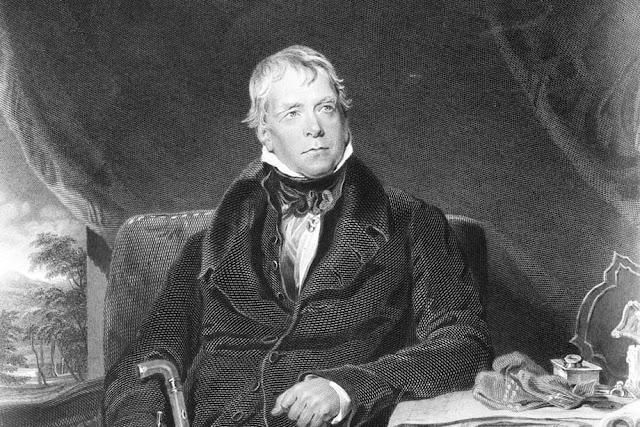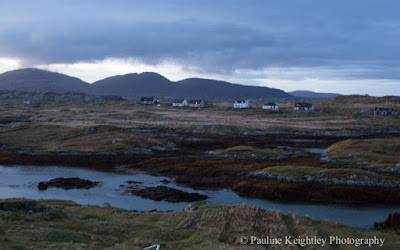Robert Burns and other poets wrote with Scots Voices. In the 1700s many worked to write down and collect the old Scots songs.
At a time when mainly Tory unionist voices were being heard - no other writer has done more to keep Scots voices and language alive than Burns.
I was taken aback at the new Scottish Art galleries Edinburgh on my visit in October 2023, that there was only one mention of Robert Burns – with regard to his “Hunt” poem in an Edinburgh tearoom painting. I felt Burns legacy was a deliberate forgetting. Did his writing influence Scottish art? The main focus in the galleries was on the works of Walter Scott.
Burns was influenced himself when he met many of the major enlightenment figures in Edinburgh in 1786, particularly James Hutton - whose theory was of the whole earth as a living organism. Burns explored the symbolism and spiritualism connections between the natural world, the creative fires and the established church teachings from his father – where dance was frowned upon.
Burns thought of how he might fuse all these new ideas together in his poetry. Later in 1794, he wrote My luv is like a Red Red Rose - ‘ I will love you still my dear till all the seas gang try and the rocks melt with the sun.” Burns collected and rewrote many of the auld Scots ballads.
Burns most famous narrative poem Tam O’ Shanter, was about warlocks, witches, faeries, demons – of the struggles between Old Spunkie’s creative fires and the church teaching - Tam O Shanter. He wrote this poem after a dream, on his walk along the River Nith at Ellisland farm. The Scottish painter Lachlan Goudie and his father were inspired to illustrate a book of the scary ghosts and witches in Tam O’Shanter.
It was wonderful to see the new Scottish galleries in 2023.
I realise Scott lived in Edinburgh but Burns was there for quite a few months in 1786 ad 1787. And was greatly influenced by his time there. He visited the men’s social clubs – Fencible Chronicles down Anchor Close. He visited William Creech’s bookshop and publishing house at the Tollbooth near St Giles cathedral and the Mercat Cross, where each day the great and the good met.
He met the great love of his life here, late 1787, Agnes McLahose (or his Clarinda) – who he wrote many letters to, and his great parting song Ae Fond Kiss.
**Scott may have been read widely worldwide in the 1800s, but to my mind (and most Scots) Burns is our national hero and bard. He was painted by his good friend Alexander Nasmyth on their walks to Rosslyn. I realise Scott did write memorable books and poems – but his books seems one-sided and narrow of a mythical Scotland that is lost and gone forever. Of a Tory unionist Scotland, that is only part of Scotland.
As I walked around the Scottish art galleries – I thought ‘which’ Scotland are we emboldening and remembering here? After the first section covering the romantic period, I entered the brighter more modern period, with the windows open to the east Princes street gardens views and which display some of Scotland’s great impressionist artists – The Glasgow Boys, James Guthrie, John Lavery, William Macgregor: The Scottish Colourists, John Peploe, John Fergusson, Francis Cadell, Leslie Hunter. A memorable display.
Burns was influenced by the Ossian poems of James MacPherson, as the first Scots bard – and also by the other great Scots poets. Burns was writing and collecting Scots poems before Scott, in fact he met a young sixteen year old Walter Scott at an Edinburgh literary party, after which Scott wore about Burns.
* * * *
Burns words, images and narratives are all pervasive, whether its his emotive love poems, his love of nature, his voice for all the people with his Socts a Hae and Mans a Man. His poetry has a big impact worldwide on authors in America and on Russian Burns clubs. Steinbeck’s 'Of Mice and Men' and J.D Salinger’s ‘Catcher in the Rye’.
Burns is the most significant Scotch image, heritage, word and song. We should be very proud of his legacies!















.jpg)

































